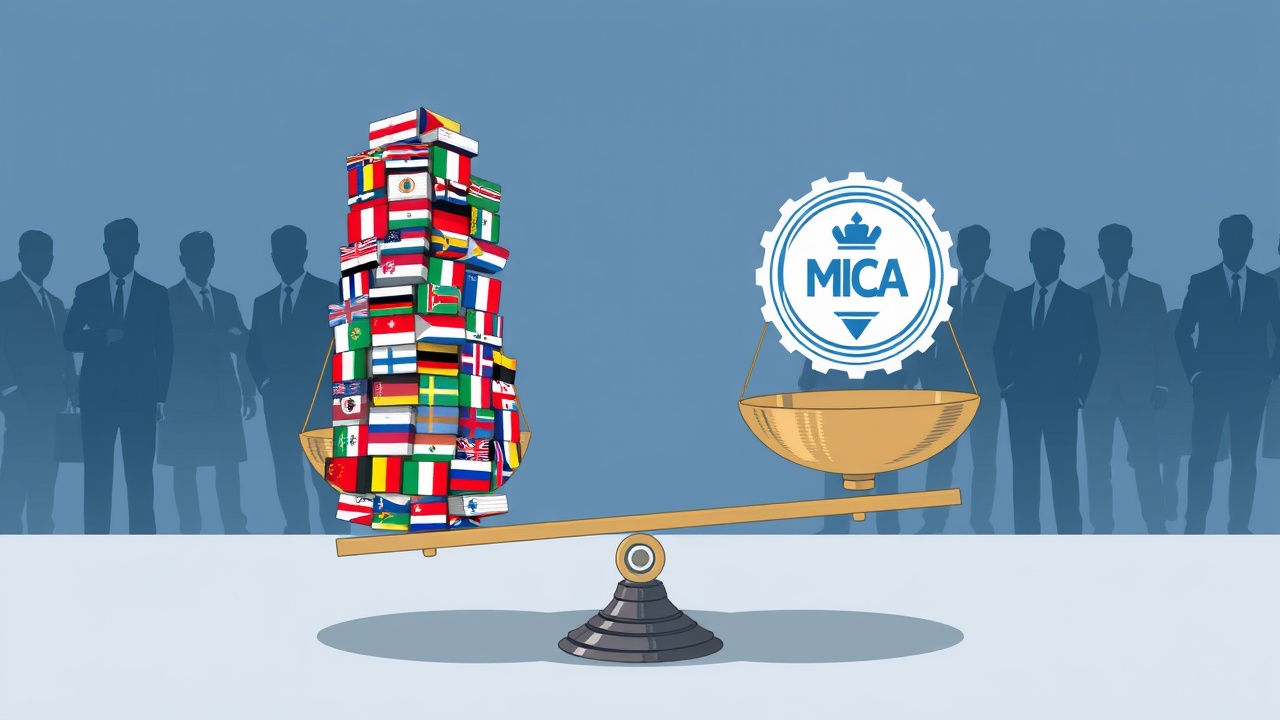The Challenges of MiCA Legislation
The European Union’s ambitious Markets in Crypto-Assets (MiCA) legislation, aimed at creating a cohesive framework for the cryptocurrency sector, is already facing significant hurdles just months after its inception. Cointelegraph’s latest podcast episode addresses whether MiCA can truly deliver on its promise of a unified market across the EU’s 27 nations.
Intent and Implementation of MiCA
MiCA’s intent was straightforward: streamline the operations of crypto enterprises by establishing a single licensing procedure applicable throughout the union. This framework allows businesses to gain a license in one member state and subsequently extend their services across the bloc without needing to navigate a diverse array of local regulations. However, less than a year into implementation, regulators in countries such as France, Italy, and Austria have raised alarms that these passporting provisions may lead firms to exploit weaker regulatory environments, a tactic referred to as regulatory arbitrage.
Insights from Industry Experts
Jerome Castille, who oversees compliance and regulatory affairs for Europe at CoinShares, observed that regulatory competition in Europe is not a new phenomenon. He pointed to the tendency of retail trading platforms to establish themselves in jurisdictions like Cyprus and Malta under previous regulations such as MiFID. “Despite expectations that MiCA would change things, we’re once again witnessing firms gravitating toward regions perceived as less stringent. If the perception arises that licenses vary in quality, the entire principle of a unified market could falter,” Castille stated.
The core issue, according to Castille, is not the existence of rules but the inconsistency in their application across different countries. He emphasized Europe’s already high standards for investor protection, claiming they might be the most robust globally. “The primary challenge right now is the complete implementation of MiCA. Due to the absence of uniform guidelines, national regulators are making independent judgments, leading to divergences and potential arbitrage within the marketplace. If we can rectify this, we can position the market as both secure and appealing for international stakeholders. Failure to do so risks driving innovation outside of Europe,” he warned.
Challenges for Smaller Enterprises
For smaller enterprises, navigating the MiCA rollout presents daunting challenges. Marina Markezic, the executive director of the European Crypto Initiative, highlighted the disparities between regulatory bodies and the swift implementation timeline which may hinder startups from competing effectively. “Compliance is demanding and time-sensitive, posing a significant challenge for smaller firms. For larger organizations, the single-entry system benefiting the EU market is advantageous, but this could serve as a formidable obstacle for smaller players who may not endure the process,” she articulated.
Although MiCA was envisioned as Europe’s strategy to take the lead in crypto regulation, its ultimate success hinges on the uniform application of the rules throughout the EU. Markezic pointed out, “27 different national authorities are tasked with overseeing the same regulatory framework. The diversity in their sizes, experience levels, and capabilities is a real test of Europe’s ability to maintain consistent oversight.”
Conclusion
To catch the full discussion, listeners can tune into the complete episode on Cointelegraph’s Podcasts, available on platforms such as Apple Podcasts and Spotify. Furthermore, Cointelegraph offers a variety of other shows for interested audiences.




